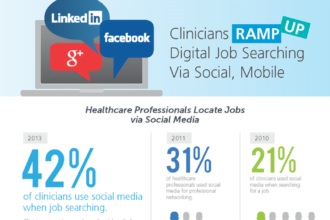EXCLUSIVE POST – On the last day of Health 2.0, the key takeaway was this: data liquidity can improve health care and health status, and reduce cost. Hey, we knew this already; the cool thing about hearing this message at Health 2.0 is that you get to hear it (1) while seeing the tools that will actually create that data liquidity that are ready for prime time, or almost ready for prime time and (2) from federal officials who are visibly excited about this stuff.
EXCLUSIVE POST – On the last day of Health 2.0, the key takeaway was this: data liquidity can improve health care and health status, and reduce cost. Hey, we knew this already; the cool thing about hearing this message at Health 2.0 is that you get to hear it (1) while seeing the tools that will actually create that data liquidity that are ready for prime time, or almost ready for prime time and (2) from federal officials who are visibly excited about this stuff.
Many of the meeting’s themes were repeating themselves from the previous day – quantified self, behavior modification and open APIs, and a couple of additional ones were introduced into the mix: Big Data can yield Big Results, the data utility layer will allow for existing and future products and services to interact rather than being islands of information, and clinical and health care financial information may be interpreted and organized so as to reduce the friction, so to speak, in interactions with providers and payors, and improve communications with family members and other caregivers.
A few examples shared here are plucked from the firehose of conference sessions and new product demos, including the Lunch and Launch session — where about a dozen handpicked early stage companies showed their wares, and the crowd voted electronically to select one for a mainstage slot at a future Health 2.0 conference. The winner this time around: Basis, which is about to launch a wristband monitor that tracks calories burned, physical activity, sleep patterns and heart rate. Other entrants were focused on behavior modification through social connections with Facebook-like interfaces, or even as Facebook apps (such as Numera|Social) One of the entrants was CareCoach, which, among other things, socializes doctor office visits by recording what the doctor says and allowing you to learn from recordings of other doctors’ conversations and pre-plan the conversation you’ll have when you go into the doctor’s office; it also lets you share certain information, with caregivers, family members and other members of your social network
The Big Data panel, including folks from the CDC, Palantir and GNS Healthcare, showed the power of being to organize and analyze vast amounts of data – for example, machines can prescreen millions of records, and humans can focus on the several hundred records identified as interesting, whether the research is academic or public health related. Data collected across a population – and personal health data gleaned from an EHR – can educate an individual about his or her health risks, as the IndiGO platform team demonstrated, enabling shared decisionmaking conversations between patients and providers. The availability of these tools is blurring traditional lines between public health, population health and health care for individuals.
Thomas Goetz (Wired) has written about making lab results reports more useful, and he presented a demo, as 1 + 1 Labs, of a product that does just that – it was simple and elegant, and ties into a proposed regulation released for public comment earlier this month – at the HHS Consumer Health IT Summit – which would remove the bar to including clinical lab data in the package of data that is subject to HIPAA and the HITECH Act (i.e., it will now be data that must be provided to a patient directly, upon request).
We heard a lot about the data utility layer, including a fascinating presentation from Runkeeper, which has an open API and is now a viable platform for collecting data from a whole host of different sorts of monitors and devices, thus enabling a streamlined approach to the quantified self.
Key team members from the ONC – including Dr. Farzad Mostashari (National Coordinator for Health IT), Lygeia Ricciardi (Senior Policy Advisor for Consumer eHealth), and Jodi Daniel (Director, Office of Policy & Planning) – held a town meeting at which they discussed their efforts to promote easy access to health data, including the recent release of the draft rule on lab results. Mostashari emphasized that his office is focused on expanding its brief beyond the need for health care providers to use data to improve health care and into the need to share data with patients in order to promote collaborative care. While the ONC focus at this point is on one-way sharing, the continued improvement of the care model and of outcomes will benefit from two-way sharing at the individual patient and population levels, and the tools now being developed – including some of those shown at Health 2.0 this fall – will be key drivers of future health status improvement.
The day wrapped up with two patient-centered parts of the program: First, a Patients 2.0 panel where the ONC staff fielded personal health data access questions from five patients who took part in the Patients 2.0 pre-conference, and where Regina Holliday showed the large triptych she had been painting for the last three days, and explicated its patient-centered meaning. (The painting was auctioned off to support a local charity selected by Regina.) Second, the Society for Participatory Medicine announced its patient-centered provider certification program, and its goal to have 10,000 physicians participate. And that brings us full circle: physicians practicing patient-centered medicine are communicating health care data and options clearly; those conversations and relationships may be supercharged by some of the Health 2.0 tools, but in the end, it’s all about the patient. This is great, because we are all patients.






